





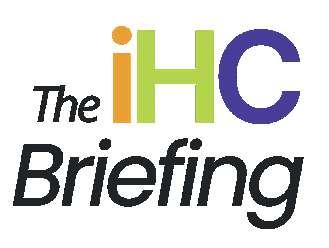
In-House Community
PUBLISHER
Rahul Prakash +852 8170 2951
rahul.prakash@ inhousecommunity.com
LEAD DESIGNER
Richard Oliver
EDITOR
Nathan Smith
WRITER








In-House Community
PUBLISHER
Rahul Prakash +852 8170 2951
rahul.prakash@ inhousecommunity.com
LEAD DESIGNER
Richard Oliver
EDITOR
Nathan Smith
WRITER

Jonathan Benton, founder & CEO, iSanctuary
For more on iSanctuary’s Ransomware Preparedness program contact Tim Gilikson, our Business Development Manager at: tg@isanctuary.io Magazine
Butch Bacaoco
CLIENT RELATIONSHIP
MANAGER
Toni Angeline Dorotheo
Published 6 times annually by InHouse Community Ltd.
Publishers of
• In-House Community Magazine
• IHC Briefing
Organisers of the
• IHC Events
Hosts of
• www.inhousecommunity.com
• www.mycareerinlaw.com
Forums for the In-House Community
Opinions expressed herein do not constitute legal advice, and do not necessarily reflect the views of the publishers.
© 2025 InHouse Community Limited and contributors.



EDITORIAL GUIDANCE PANEL




Carina Wessels
Executive: Governance, Legal and Compliance, Alexander Forbes Group Holdings
Preeti Balwani
General Counsel at Hindustan Coca-Cola Beverages
Ron Yu
University of Hong Kong, Chinese University of Hong Kong, Hong Kong University of Science and Technology
Stanley Lui
APAC Legal Director, TI Fluid Systems Co-Founder, White Hat Guys
Jonathan Benton is founder and CEO of iSanctuary, a global intelligence firm specialising in asset protection, tracing and recovery, including crypto, Open Source Intelligence investigations, and enhanced due diligence.
Tony Dymond, Partner,
Tony Dymond is a partner in the firm’s Hong Kong and London offices, and a member of the International Dispute Resolution Group. He is Co-Chair of the firm’s Asia Arbitration practice. His practice focuses on complex, multijurisdictional disputes, in both litigation and arbitration.
Mr. Dymond joined Debevoise in 2014. He has advised clients in a wide range of jurisdictions, having spent the last 25 years in London, Hong Kong and Seoul.
Gavin Chesney is a solicitor advocate in the firm’s International Dispute Resolution Group and is based in the London office. His practice focuses on international commercial disputes, both in international arbitration and in court litigation.
Vaibhav has advised and carried out negotiations for a range of multi-national and national clients, including top government entities, fortune 500 companies, project sponsors, developers, construction contractors, investors, multilateral agencies, banks and financial institutions in the sectors of energy projects such as oil and gas and power (conventional, renewable and nuclear) projects (ranging from 10 MW to 9GW), infrastructure projects involving roads, ports, airports, urban infrastructure, railways and natural resources projects involving mines and metals. He also engages in policy advisory matters in the power & energy and infrastructure sectors.




Carl Watson General Counsel, Arcadis Asia
Raymond Goh General Counsel, International of China Tourism Group
Sally Dyson Director, Firm Sense
Yosr Hamza Director, Legal Counsel, Gartner



Navrita Kaur Chief Legal Officer, Omesti Group
Rebecca Hong Managing Counsel, Intel Corporation
Vecchi Managing Partner, Russin & Vecchi







Atsumi & Sakai opened an affiliate office in the Japanese city of Osaka to service the growing demand from domestic and international businesses for diversified and sophisticated legal services in the Kansai region.
With the new office, the firm’s network comprised eight offices and affiliate offices in Japan and overseas.
From its Tokyo base and other offices, Atsumi & Sakai provided its clients with high-level expertise in a broad range of legal and business fields, including cross-border transactions, M&A, finance, intellectual property, risk management and commercial disputes.
Focusing on corporate law, A&S Osaka played a key role in enabling the firm to provide enhanced support to companies and foreign-affiliated businesses in the region.
Lawyers at the firm’s other offices worked in partnership with A&S Osaka as necessary and provided timely and precise solutions for clients in the Kansai region. The new
office also actively supported local companies expanding overseas and foreign companies entering Japan, as well as providing legal advice to regional financial institutions and venture companies.


Zaid Ibrahim & Co promoted its Deputy Managing Partner, Amin Abdul Majid, to the role of Managing Partner. He succeeded Gilbert Gan, who assumed the position of Senior Partner of the firm.
Amin joined the firm in 2011 and co-led its Infrastructure, Energy and Utilities practice. He had a strong track record as an energy and corporate lawyer, most recently advising on the introduction of innovative technologies in the electricity supply industry, the regulation of upstream oil and gas activities, and the sale of the production arm of a large international engineering company.
He also advised on the drafting of Malaysia’s Renewable Energy Act 2011, the Energy Efficiency and Conservation Act 2024, as
well as its Carbon Capture, Utilisation and Storage Bill 2025.
Amin obtained his Bachelor of Laws (Honours) from the London School of Economics and Political Science, University of London, and his Master of Jurisprudence in Energy Law from the College of Law, Tulsa University, US.
“I am honoured and energised by the confidence of my colleagues in this opportunity. This firm’s unwavering commitment to delivering exceptional value, empowering our people, embracing technology and making a meaningful impact is what drew me here, and will remain my guiding principles as I spearhead the firm,” Amin said.
Tan Sri Dr Nik Norzrul Thani Nhassan Thani, the firm’s Executive Chairman, said, “As one of Malaysia’s top homegrown firms, we know that the key to maintaining high quality and innovative services for our clients is cultivating a dynamic ecosystem for talent, leadership growth and proper succession planning.”

Gorriceta Africa Cauton & Saavedra appointed Jose Ma. Emmanuel “Kiril” Caral as Senior Counsel and Head of the firm’s Energy Practice Group. With over three decades of legal and executive leadership, his appointment strengthened the firm’s position in Energy Law.
Caral brought a distinguished track record in regulatory compliance, stakeholder engagement, dispute resolution and supporting multi-billion-dollar investments. He had held senior leadership roles at Prime Energy Resources Development, the Shell companies in the Philippines, and for Singapore-based Shell Exploration and Production Asia Pacific, supporting business development and operations in Indonesia, Australia, Brunei, Malaysia and India.
Caral earned his Master of Laws with Distinction from the University of Edinburgh. He also held a Juris Doctor and an AB in Economics from Ateneo de Manila University. At the time of his appointment, Caral served as Senior Adviser to Prime Energy and as Chairman & President of the Malampaya Foundation. He was also an active member of the Association of International Energy Negotiators (AIEN) and the InterPacific Bar Association (IPBA).
“I am honoured to join Gorriceta at this pivotal stage of growth. The energy sector is undergoing a significant transformation, and I look forward to building a practice that combines legal excellence with strategic foresight,” said Caral.

Mark S. Gorriceta, Chairman & Managing Partner of Gorriceta Africa Cauton & Saavedra, commented, “Caral’s appointment reinforces our ability to provide high-impact legal counsel to clients navigating complex energy and infrastructure challenges.”

Blumenthal Richter & Sumet (BRS) expanded its regional platform with the acquisition of law practice Legal ASEAN, further strengthening the firm’s capabilities in cross-border investments, real estate, foreign direct investment and regional legal consultancy across Southeast Asia.
Legal ASEAN’s founder, Mark D. Alelio, joined BRS as a Partner, bringing with him over 20 years of experience with multinational law firms in Thailand, Vietnam and Myanmar. His team, comprising five associates and support staff, also joined BRS as part of the acquisition.

Mark was widely recognised for his strategic counsel to international and Thai clients on market entry, real estate development, FDI and cross-border structuring. His practice additionally covered dispute resolution, having managed complex real estate and labour disputes, and represented clients before Thailand’s Department of Special Investigations.
“Joining BRS will enable me to offer my existing clients an even broader range of legal services, including access to the firm’s in-house dispute resolution, intellectual property, and tax and customs teams. Clients will also benefit from BRS’s dedicated Japan Desk and China Desk, further enhancing the regional support we can provide,” Alelio said.
BRS Senior Partner and Head of Real Estate
Robert Schuler added, “Mark’s extensive experience across Southeast Asia aligns with BRS’s long-term strategic vision to grow our regional capabilities and deepen support for clients investing and operating in ASEAN markets.”



Greenberg Traurig has added a fourlawyer project finance and construction team to its Dubai office, working closely with colleagues in Riyadh. The group joins from Norton Rose Fulbright and includes Shareholders Nicholas Kramer and Angela Croker, and Of Counsels Anastasia Kastelskaya and Lindsay Crawford. Croker becomes head of Project Finance for the UAE, advising on energy and infrastructure financing, PPPs and energy transition projects. Kramer becomes head of Construction and Projects for the Middle East, advising on major developments across multiple sectors and phases, including procurement, contracts and disputes.

Greenberg Traurig Khalid
Al-Thebity Law Firm has expanded its Public Policy and Regulatory team in Saudi Arabia with the addition of leading lawyer Abdullah Alzamil as a Shareholder in Riyadh. Alzamil is one of the KSA’s top public policy and regulatory experts, with over a decade shaping major reforms, infrastructure initiatives and high-value transactions. Licensed in Saudi Arabia, New York, and England and Wales, he brings expertise in Shariah, common and civil law. He has helped craft key legislation supporting Vision 2030 and advised ministries on PPPs, M&A, investigations and major disputes.
Charles Russell Speechlys has hired Francis Li and Wendy Fong as corporate partners in


Hong Kong, effective 1 September 2025. They join from Squire Patton Boggs with a team, bringing
over forty years of combined experience in corporate finance, equity capital markets, cross-border deals and M&A. Li has advised companies across Asia and previously worked as an investment banker, while Fong counsels multinationals, investment banks and private equity funds on complex transactions.

Herbert Smith Freehills Kramer has added Mohammed Al Eshaikh as a partner in its corporate practice based in Riyadh. Al Eshaikh joins from AS&H Clifford Chance. His practice spans a broad range of corporate and commercial matters, comprising equity capital markets, restructuring, corporate governance and general corporate transactions.

Trilegal has appointed Nishith Mehta to lead its Risk and Compliance Practice, signalling a major boost to its legal and regulatory risk capabilities. Mehta brings over 25 years of experience across banking and capital markets, spanning broker-dealer operations, investment banking, wealth management and structured products. He has held senior roles at Lehman Brothers, Goldman Sachs, Edelweiss and, most recently, Bank of America, where he served as Co-Head of Compliance for Asia Pacific and Chief

Compliance Officer for India. He has extensive experience managing multi-jurisdictional compliance, overseeing regulatory inspections, enforcement actions and risk transformation programmes, and has worked closely with regulators such as the RBI, SEBI, OCC and the Federal Reserve. Mehta is widely regarded as a trusted advisor who blends global best practices with deep regional

2025, splitting her time between Brisbane and Sydney. Simmons, a former founding partner of Clifford Chance Australia, brings over 30 years’ experience in M&A, governance and corporate disputes. Reid, formerly at ASIC and Mills Oakley, advises on complex deals, fundraising and shareholder activism. Ganter, a long-time Allens partner, specialises in public and private M&A and corporate advisory









Prasongprasit and Dr Theeravuth
Temsiriwattanakul, expanding its capabilities in tax structuring, customs and tax disputes. Prof Veraphong brings over 30 years of experience and is one of Thailand’s most respected tax lawyers. Prasongprasit, fluent in Thai, English and Japanese, is a seasoned tax adviser with experience at top international firms, while Dr Temsiriwattanakul is a noted academic specialising in complex tax issues. The firm has also welcomed veteran litigator Srangsomwong as Senior Advisor to its Dispute Resolution team. Formerly a managing partner at a leading firm, he brings over four decades of experience handling high-profile litigation in Thailand.

Skadden International Litigation and Arbitration partner Sharmistha
Chakrabarti has relocated from New York to the firm’s Singapore office. Fluent in English, Hindi and Bengali, she is admitted in India, New York, and England and Wales, and registered as a foreign lawyer in Singapore. Chakrabarti advises on commercial and investor-state arbitrations across sectors including telecoms, energy, tech and crypto, and counsels on dispute risk, investment protection and cross-border enforcement. She brings extensive experience and is recognised for her expertise in Indian arbitration and global dispute strategy.
Rajah & Tann Singapore has added Paras Lalwani and Reka Mohan as partners in its Commercial Litigation practice. Lalwani specialises in commercial disputes, international arbitration and regulatory investi-


gations. Dual qualified in Singapore and New York, he is a Fellow of the Chartered Institute of Arbitrators and sits on panels including SIAC, KCAB, HKIAC and THAC. Mohan handles banking, corporate and commercial disputes, arbitration, restructuring and shareholder matters. She represents listed companies, multinationals and banks in complex cross-border cases, and is bilingual in English and Tamil.

Greenberg Traurig has strengthened its Hospitality Practice with the addition of industry veteran Elias J. Hayek as co-chair of its Middle East and European Hospitality Group, based between the UAE and KSA. Hayek previously led the global Hospitality Leisure Group at another international firm and brings three decades of crossborder experience, having closed over 500 deals across 45 cities. He advises on M&A, JVs, licensing, franchising, hotel project leasing, and mixed-use developments. Formerly vice-president of legal at Starwood Hotels & Resorts for EMEA, Hayek has advised on multi-billion-dollar hospitality and gaming projects across the Middle East and Europe, and is recognised for his deep sector expertise.

A&O Shearman has advised Coda Payments, a Singapore-headquartered global leader in digital content monetization, on its proposed acquisition of CG Holding (Recharge), Europe’s largest prepaid payments platform. The transaction brings together two regional leaders with complementary strengths and, based on 2024 figures, the combined business will have processed over US$1.75 billion in sales. Partners Tom Jokelson (Singapore) and Justin Steer (Amsterdam), supported by partner Matthew Del Rosso, led the firm’s cross-border, multidisciplinary team in the transaction.
Allen & Gledhill has advised Temasek Financial (I) and Temasek Holdings on the issue of US$750 million 3.75% guaranteed notes due 2027, and US$750 million guaranteed floating rate notes due 2027. Partners Yeo Wico, Wu Zhaoqi, Kern Wong and Sunit Chhabra led the firm’s team in the transaction.
AZB & Partners is advising existing investor TPG on participating, along with other investors, in the Rs14.7 billion (US$167m) acquisition of a stake in Fractal Analytics. Partners Vaidhyanadhan Iyer and Jeet Chaudhuri are leading the firm’s team in the transaction, which was signed on 1 July.
Baker McKenzie has advised China International Capital Corporation Hong Kong Securities, as the financial adviser to the offeror, a subsidiary of PAG, on the privatisation through a merger by absorption of Hong Kong-listed Shandong Fengxiang. Partner and Asia Pacific Capital Markets co-head Christina Lee, supported by FenXun partner
Yolanda Zheng, led the firm’s team in the transaction. Chinese law firm FenXun established a joint operation with Baker McKenzie under the name Baker McKenzie FenXun in 2015.
Carey Olsen has acted as Cayman Islands counsel to leading China-based asset management firm Jupiter Research Capital (Asia) on the launch of a Cayman Islands master feeder structure. Jupiter Research Capital will be deploying a systemic trading strategy in managing the fund. Hong Kong corporate partner Michael Padarin led the firm’s team in the transaction. Sidley Austin Hong Kong acted as lead counsel on the fund launch.
Chandler Mori Hamada has advised Muangthai Capital on its establishment of a US$3 billion Global Medium Term Note Programme and the inaugural drawdown of US$350 million senior unsecured social notes under the GMTN Programme. The funds raised will support projects aimed at




increasing agricultural productivity and income. Partner Doungporn Prasertsomsuk led the firm’s team in the transaction.
Clifford Chance is advising JP Morgan, as exclusive financial advisor, on the proposed take-private of Hong Kong-listed Kangji Medical by a consortium led by TPG, Qatar Investment Authority (QIA) and Kangji Medical’s co-founders Mr Zhong Ming and Ms Shentu Yinguang. M&A partner Alex Bidlake, supported by partners Liyong Xing and Michael Pallaras, led the firm’s team in the transaction.
Davis Polk has advised Horizon Robotics on its placing of existing shares and top-up subscription of 681 million new shares. The gross proceeds from the placing were approximately HK$4.674 billion (US$595m). Partners Li He, Jason Xu and

Ran Li led the firm’s cross-border team in the transaction.
DLA Piper has advised Ping An subsidiary Yun Chen Capital Cayman on the sale of approximately 43% of ordinary shares in Autohome to Haier Group subsidiary Cartech Holding, establishing Cartech as the largest Autohome shareholder. Corporate partner James Chang (Beijing) and Asia and co-country managing partner and senior partner Roy Chan (Shanghai), supported by Greater China capital markets compliance head Vivian Liu, Asia tax co-head Windson Li and US corporate partner Andrew Ledbetter, led the firm’s team in the transaction.
JSA has advised Allianz Group on the binding agreement entered between Allianz SE’s wholly-owned subsidiary Allianz Europe and Jio Financial Services to form a
50:50 domestic reinsurance joint venture in India. Partners Venkatesh Raman Prasad and Ronak Ajmera, supported by partners Kumarmanglam Vijay, Manish Mishra, Shareen Gupta, Sidharth Sethi, Vaibhav Choukse and Ela Bali, led the firm’s team in the transaction.
Latham & Watkins has advised the initial purchasers on FinVolution Group’s offering pursuant to Rule 144A under the US Securities Act of US$150 million in aggregate principal amount of convertible senior notes due 2030. Hong Kong corporate partner Posit Laohaphan, supported by New York partner Elena Romanova on tax matters, led the firm’s team in the transaction.
Maples has advised Baidu on two significant bond issuance transactions, which were both completed on 12 March. Baidu is a Chinese multinational technology company specialising in internet-related services and products, as well as in AI. Asia corporate head Matt Roberts led the firm’s team in the transaction.
Paul Hastings has advised Nasdaq-listed Smithfield Foods and its shareholder, WH Group, on the upsized US$522 million sale in a secondary offering by SFDS UK Holdings of Smithfield common stock. BofA Securities, Barclays and Morgan Stanley acted as joint lead book-running managers. Securities and capital markets co-chair Colin Diamond and founding partner and Greater China chair Raymond Li, supported by partners Brandon Bortner (US), Dan Hirschovits (London) and Peter Cheng, led the firm’s team in the transaction.

Rajah & Tann Singapore has acted as Singapore counsel to HPS Investment Partners on the US$12 billion acquisition of HPS by BlackRock, creating a US$190 billion private financing platform at BlackRock. Partner Anne Yeo from the Funds & Investment Management Practice led the firm’s team in the transaction.
RPC has advised Seraya AQX, a Tokyo-based digital infrastructure investment platform owned by Seraya Partners, on its acquisition of SPTel. Singapore corporate M&A partner Kenneth Leong, supported by partner Nicholas Lauw, led the firm’s team in the transaction.
S&R Associates has represented Oswal Pumps, a vertically integrated solar pump manufacturer, and its promoter selling shareholder Vivek Gupta on its Rs13.87 billion (US$162m) IPO. Partner Juhi Singh led the firm’s team in the transaction.

Shardul Amarchand Mangaldas & Co has acted as Indian counsel to GMR Group on the strategic divestment of the majority stake in stressed assets, including GMR Bajoli Holi Hydropower, GMR Rajahmundry Energy and GMR Vemagiri Power Generation, to Synergy Investments Holding in a cross-border transaction. Partners V R Neelakantan and Samridha Neupane led the firm’s team in the transaction.
Simon Reid-Kay & Associates has acted as Hong Kong real estate counsel to the syndicate of banks on the landmark HK$88.2 billion (US$11.2b) financing transaction for New World Development. Cindy Au led the firm’s team in the transaction.
Simpson Thacher is representing the Special Committee on Zeekr Intelligent Technology Holding’s agreement and plan of merger with Geely Automobile Holdings and its indirect wholly-owned subsidiary, Keystone Mergersub. Beijing partner Yang Wang led the firm’s team in the transaction.
Skadden has advised Yimutian, a leading agricultural B2B platform in mainland China, on its IPO of more than five million American depositary shares on the Nasdaq. Partner Shu Du, supported by partners Brian Breheny (SEC reporting and compliance, Washington, D.C.), Kevin Hardy (Chicago, investment management) and Sean Shimamoto (Houston, tax), led the firm’s team in the transaction.
Trilegal has advised The Supreme Industries, India’s largest plastics processor and a leading manufacturer of plastic piping
systems, on its acquisition of Wavin’s pipes and fittings business in India. Partner Kosha Thaker, supported by partner Gauri Chhabra, led the firm’s team in the transaction.
TT&A has advised Playbook India Fund II on its Rs1.8 billion (US$21m) primary and secondary investment in Renee Cosmetics. The round was led by Playbook, via subscription and purchase of equity shares. Cyril Amarchand Mangaldas and Synapse Partners advised Renee Cosmetics, while Shardul Amarchand Mangaldas advised Mensa Brand Technologies.

WongPartnership is acting for the claimants, Kevin Rahim and Jessica Tjitra, on the lawsuit against PropNex Realty, PropNex’s sales agent and CK Tan Law Corporation. Partner Gavin Neo is leading the firm’s team in the matter.

The United Arab Emirates (UAE) has established itself as a significant global business hub, attracting numerous entrepreneurs and companies due to its favorable economic policies and tax incentives. However, with rapid growth comes the risk of financial distress among businesses. The Federal Decree-Law No. 51 of 2023 on bankruptcy has introduced a comprehensive framework to address the challenges faced by financially distressed companies. This article explores common errors made by companies under this law, as well as the responsibilities of the board of directors and company executives in ensuring compliance and protecting stakeholder interests.
The UAE Bankruptcy Law, implemented in April 2023, represents a pivotal shift in the insolvency landscape, facilitating a more supportive framework for companies in financial distress. The law aims to provide businesses with opportunities to restructure and recover, thereby minimizing the need for liquidation. It encompasses various procedures, including preventive composition, financial restructuring, and bankruptcy liquidation.
1. Preventive Composition: This allows companies to negotiate with creditors to reach amicable debt settlements.
2. Financial Restructuring: This procedure enables companies to implement effective debt restructuring plans to regain financial stability.
3. Bankruptcy Liquidation: As a last resort, this process ensures an orderly winding down of operations while allowing for equitable distribution of assets among creditors.
Despite the robust framework introduced by the UAE Bankruptcy Law, many companies fall into common pitfalls that can worsen their financial situations. Understanding these errors is crucial for firms attempting to navigate the complexities of bankruptcy law.
A significant mistake is failing to recognize early signs of financial distress. Companies often postpone seeking assistance until the situation becomes critical. By delaying intervention, businesses miss opportunities for

restructuring and negotiation with creditors, ultimately leading to harsher outcomes under bankruptcy procedures.
Poor financial management, including overspending and failure to maintain accurate financial records, often exacerbates financial difficulties. Companies may misallocate resources or neglect budgetary constraints, hindering their operations. Moreover, inaccuracies in financial reporting can mislead stakeholders and worsen the company’s standing during insolvency proceedings.
Many companies neglect their legal responsibilities and fail to comply with the provisions of the UAE Bankruptcy Law. This includes not submitting required documentation on time, failing to communicate with creditors, or disregarding the need for court approval in restructuring plans. Such negligence can
lead to unfavorable judgments and may even result in personal liabilities for board members and executives.
Given the potential for significant corporate missteps, the board of directors and company executives must understand their roles and responsibilities under the UAE Bankruptcy Law. Their actions can significantly influence a company’s survival or failure during financial distress.
Board members have a fiduciary duty to act with care and diligence. This involves monitoring the company’s financial performance actively and ensuring that financial records are accurate and up-to-date. Section 22 of the UAE Commercial Companies Law emphasizes that directors must act in good faith and in the
best interest of the company, reflecting their responsibility towards the stakeholders.
Directors must engage in robust financial oversight to detect early warning signs of distress. Regular reviews of financial statements, budgeting practices, and cash flow projections are essential to identifying potential issues. The Department of Economic Development in the UAE has emphasized the importance of transparent financial practices in maintaining corporate health.
When financial difficulties are identified, the management team is obligated to act promptly. This can involve seeking external advice, initiating negotiations with creditors, or even engaging with legal counsel to explore restructuring options under the UAE Bankruptcy Law. Inaction can significantly worsen the company’s situation and may lead to the board’s liability for negligence.
The board and management must ensure strict adherence to all statutory requirements during insolvency proceedings. This includes timely submissions of necessary documentation to the court and transparent communication with all stakeholders. The law mandates honesty in dealings with creditors; any fraudulent activity can subject the directors to criminal liability.
Directors and executives are charged with avoiding conflicts of interest during bankruptcy proceedings. They should prioritize the company’s interests over personal gain or external influences. Article 24 of the UAE Bankruptcy Law underscores that any profit gained through breach of trust in managing a distressed company can lead to civil and criminal repercussions for responsible parties.
The UAE Bankruptcy Law provides a crucial safety net for companies facing financial difficulties, enabling them to restructure and recover rather than face liquidation. However, the effectiveness of this law hinges on the board of directors and management’s awareness of their responsibilities and the common pitfalls in corporate governance. By addressing these issues proactively, directors can protect stakeholder interests, promote sustainable business practices, and ensure compliance with legal obligations. Creating a culture of accountability and transparency within organizations will not only guard against insolvency but will also contribute to the overall stability and prosperity of the UAE’s economic landscape.
Ultimately, the success of any business, especially during financial distress, lies in the wisdom and foresight of its leadership, and fostering a responsible corporate environment is essential for overcoming challenges in the evolving landscape of the UAE economy.


Abdelaziz Alhanaee, founder, Abdelaziz Alhanaee Law Firm
Abdelaziz Alhanaee is a UAE-based lawyer and the founder of Abdelaziz Alhanaee Law Firm. With over 23 years of experience, he specializes in civil and commercial litigation, arbitration, and criminal law. A registered arbitrator with DIAC and ICC, he has acted in numerous local and international cases and is recognized for his strategic legal expertise and strong courtroom presence.
Email id: abdelaziz@alhanaee.com Mobile no: +971506288599.

Jonathan Benton, a former senior detective with more than 27 years’ experience, including as a hostage and crisis negotiator, now leads iSanctuary, a UK based firm that conducts technology-enabled crossborder investigations, tracks hidden assets, and specialises in crisis management. Drawing on his experience dealing with cybercriminal networks, terrorist organisations and state actors, in this article Jonathan underlines the urgent need for businesses to plan ahead.
The financial and reputational cost of a ransomware attack is staggering. Marks &
Spencer, a retail giant in the UK, for example, recently suffered an attack resulting in losses exceeding GBP300 million, almost an entire year’s operating profit. Yet large corporates are not the only targets. Smaller businesses are also at risk precisely because they are seen as less able to withstand or resist demands.
Attackers range from individuals operating from their bedrooms to state-backed operations and organised criminal networks. Identifying the nature of the threat is far from straightforward. If you don’t know what threat you face, you don’t know how to prepare for it.
While some attacks are triggered instantly through phishing emails or malicious downloads, others involve malware planted within systems, lying dormant until activated. Typically, the attack culminates in a demand sent from an anonymous source, threatening to release stolen data unless payment is made.
The decision-making process at this stage is complex and must involve more than just the CIO or CTO. It requires a whole C-Suite level response, given the legal, operational and reputational risks involved. Questions around business continuity, the scope of the breach, and communications strategy, both internal and external, all demand immediate attention.
A key issue for corporate counsel is whether to, and how to interact with the attackers. Our advice is to stall for time to understand who the attackers are, if they are linked to sanctioned entities – they could be state-backed criminals. And importantly, what legal implications may arise if payments are made. Immediate payment is rarely justified and should not happen.
and preventing media reporting. This helps cut off the publicity attackers seek to increase pressure on victims. The hackers want to create an environment of fear and panic, this can be mitigated against, particularly through thorough preparation.
Payment, if it is considered at all, carries significant challenges. Criminals typically demand cryptocurrency, which many businesses are ill-equipped to provide. Having a rehearsed plan in place can give organisations the breathing space to negotiate, reduce demands, or in some cases avoid payment altogether.
Large corporates are not the only targets. Smaller businesses are also at risk precisely because they are seen as less able to withstand or resist demands.
Preparation is central to resilience. Every business should establish a ransomware ‘playbook’: a secure, standalone plan setting out how the organisation will understand internally all roles and responsibilities, who the decision makers are and whether external support should be drafted in. The team managing the attack will need to assess damage, engage with attackers, and make key decisions. This should incorporate a legal framework and a clear communications protocol to prevent well-meaning staff from exacerbating the situation. Internal communication is critical too. Staff can panic, inadvertently speak out or even acerbate the problem by rebooting infected systems.
Recent legal developments provide additional tools. While unique to the UK, it is worth noting that English courts have begun granting super-injunctions enabling service providers to remove published data rapidly
Having a playbook means that, in the event of an attack, you can immediately follow a tested process rather than improvise under pressure. The military and police plan for crisis then practice their responses, yet repeatedly we witness businesses and organisations that assume it will not happen to them. The modest investment required to develop and rehearse such a plan can save businesses millions and prevent irreparable reputational harm.

At iSanctuary, we work with financial and professional services firms to stress-test senior teams through simulated ransomware attacks. These exercises expose leaders to the pressure and complexity of a live attack, highlighting gaps in preparation. We also support organisations in real-time, working alongside insurers, regulators and law enforcement to contain and resolve incidents.
We urge businesses to build relationships with any relevant national bodies (in the UK, for example, the National Cyber Security Centre and the National Crime Agency, in Singapore, the Cyber Security Agency, etc.) which hold
valuable intelligence that can support decision-making during an attack.
The most important lesson we have learned is that a ransomware attack should not be seen as a remote possibility. Assume it is going to happen to you, because when it does, if you are not prepared, it could very well destroy your business.

The modest investment required to develop and rehearse a plan can save businesses millions and prevent irreparable harm.

Jonathan Benton, founder & CEO, iSanctuary
Jonathan Benton is founder and CEO of iSanctuary, a global intelligence firm specialising in asset protection, tracing and recovery, including crypto, Open Source Intelligence investigations, and enhanced due diligence.
For more on iSanctuary’s Ransomware Preparedness program contact Tim Gilikson, our Business Development Manager at: tg@isanctuary.io
Hyalroute Communication Group Limited v Industrial and Commercial Bank of China (Asia) Limited [2025] HKCFI 2417

In mid-2018, the Cayman Islands-incorporated claimant, Hyalroute Communication Group Limited (“HCGL”), entered into a Hong Kong law-governed facility agreement (the “Facility”) with the defendant bank, the Industrial and Commercial Bank of China (Asia) Limited (“ICBC”), under which HCGL guaranteed the obligations of its subsidiary, the Myanmar Fiber Optic Communication Network Company Limited (“MFOCN”). However, as an alternative to HCGL’s guarantee obligations, the Facility also provided for ICBC to take out insurance from the World Bank’s Multilateral Investment Guarantee Agency (“MIGA”) (the “Policy”), and the Facility provided that if HCGL paid all required Policy premiums to MIGA and formally notified ICBC when
any Policy “Covered Risks” arose, HCGL’s obligations as guarantor would be suspended with respect to any consequences of such Covered Risks. The Facility provided for disputes to be resolved by Hong Kong-seated arbitration under the rules of the Hong Kong International Arbitration Centre.
MFOCN drew down USD 100mn under the Facility. However, after Myanmar suffered a military coup in January 2019, MFOCN found itself unable to repay. The occurrence of the coup would have been a “Covered Risk” for the purposes of the Policy, but it transpired that HCGL had not been paying the required Policy premiums to MIGA, and HCGL did not properly notify ICBC of the situation in
Myanmar. HCGL nevertheless maintained to ICBC that its obligations as guarantor of MOFCN were suspended.
In mid-November 2024, ICBC made a statutory demand in respect of sums owed under HCGL’s guarantee obligations under the Facility and filed a petition in the Cayman Islands courts seeking to have HCGL wound up (the “Winding-Up Petition”). HCGL responded in early December 2024 by seeking an anti-suit injunction from the Hong Kong courts to stay the Winding-Up Petition, arguing that ICBC was in breach of its agreement to refer any disputes arising out of the Facility to Hong Kong arbitration.
HCGL’s anti-suit application came before Mr William Wong SC, sitting as a Recorder. He observed that the test for an anti-suit injunction in Hong Kong is:
• First, whether the defendant is in breach of an arbitration agreement; and
• Second, if so, whether there are nevertheless strong contrary grounds against an anti-suit injunction.
Recorder Wong noted that in recent previous cases where a party had commenced winding-up petitions in foreign courts, the Hong Kong courts had set a low threshold for determining whether the winding-up proceedings were a breach of an arbitration agreement. In particular, as said in Re Mega Gold Ltd; Re Man Chun Sing Matthew1 , if a debtor simply refused to admit the “petition debt” upon which a creditor based its winding-up
petition, the Hong Kong courts had considered that this was sufficient to be a “dispute” that would engage a generally worded arbitration agreement, which would satisfy the first stage of this test.
Applying this framework to the facts, Recorder Wong started with the express terms of the arbitration clause in the Facility and noted that the parties had agreed that disputes would be “finally resolved” by arbitration. However, Recorder Wong considered that this reference to “final resolution” meant that if the Winding-Up Petition would not finally resolve the validity or value of HCGL’s guarantee, then ICBC had not breached the arbitration agreement by issuing it.
Recorder Wong reasoned that a useful test for whether the Winding-Up Petition would amount to a final decision over the guarantee was if it would give rise to res judicata or an issue estoppel between HCGL and ICBC2. He further reasoned that he could not treat the Petition as having final effect as a matter of Hong Kong law if Cayman law would not do so itself. Turning therefore to Cayman law, he concluded that it would not regard the resolution of the Winding-Up Petition as a final decision on the guarantee. Cayman law distinguishes between a “threshold” question for commencing insolvency proceedings, as to whether there is a “genuine dispute on substantial grounds” as to the existence or validity of the debt, and a “substantive” question as to how any such dispute should be resolved. In this case, Recorder Wong considered on the evidence before him that the Winding-Up Petition would only decide the threshold question and that the Cayman courts would refer any substantive dispute to the parties’ agreed forum.
1 See, Re Mega Gold Ltd; Re Man Chun Sing Matthew [2024] HKCFI 2286, ¶¶ 55–72 for a helpful summary of Hong Kong’s approach.
2 Relying on Re Lam Kwok Hung Guy [2022] 4 HKLRD 793.

Recorder Wong therefore rejected HCGL’s argument that ICBC had breached its agreement to arbitrate by commencing the Winding-Up Petition.
Recorder Wong also held that there were in any event strong grounds against granting an anti-suit injunction. In his view, HCGL’s defence that its obligation to satisfy the guarantee had been suspended was “hopeless and frivolous” because MIGA had cancelled the Policy following HCGL’s non-payment of the premiums. He considered it “abusive for [HCGL] to rely on such a defence to prevent [ICBC] from invoking the Cayman Court’s winding up jurisdiction”.
The decision in Hyalroute may indicate a shift in the approach taken by the Hong Kong courts to the interface between insolvency law and international arbitration. As Recorder Wong noted, in recent years, the Hong Kong courts have followed the reasoning of the English case Salford Estates (No 2) Ltd v Altomart Ltd (No 2) [2014] EWCA Civ 1575 (“Salford Estates”) and held that any dispute about a petition debt, even a non-admission of the debt, is sufficient to engage a generally worded arbitration agreement and raise a presumption in favour of granting an anti-suit injunction to stay any insolvency proceedings. However, Hyalroute departed from this, despite the arbitration clause being in an apparently standard form and broad enough to cover all disputes between the parties. Instead, Recorder Wong declined
to interfere in the insolvency proceedings commenced in the jurisdiction in which HCGL was incorporated.
In doing so, Hyalroute appears to move towards the position in modern English law, following the Privy Council’s decision in Sian Participation Corp (In Liquidation) v Halimeda International Ltd [2024] UKPC 16 (“Sian Participation”), which overturned Salford Estates. The test the English courts apply after Sian Participation is only to grant an anti-suit injunction against a winding-up petition where the debtor can show that the relevant petition debt is genuinely disputed on substantial grounds and that this dispute is to be resolved by arbitration. Different considerations may apply if the arbitration clause expressly includes insolvency disputes, or if the insolvency procedure invoked would necessarily involve the resolution of substantial questions of fact, but generally, English courts are now more reluctant than before Sian Participation to grant anti-suit injunctions against insolvency proceedings.
Whether other Hong Kong decisions will follow Hyalroute in moving towards Sian Participation remains to be seen.


Tony Dymond, Partner, London
Kong
Tony Dymond is a partner in the firm’s Hong Kong and London offices, and a member of the International Dispute Resolution Group. He is Co-Chair of the firm’s Asia Arbitration practice. His practice focuses on complex, multijurisdictional disputes, in both litigation and arbitration.
Mr. Dymond joined Debevoise in 2014. He has advised clients in a wide range of jurisdictions, having spent the last 25 years in London, Hong Kong and Seoul.

Gavin Chesney, Counsel, London
Gavin Chesney is a solicitor advocate in the firm’s International Dispute Resolution Group and is based in the London office. His practice focuses on international commercial disputes, both in international arbitration and in court litigation.

Sarah Lee, Registered Foreign Lawyer (New York), Hong Kong
Sarah Lee is a member of the firm’s International Dispute Resolution Group in Hong Kong. Her practice focuses on public international law and international arbitration. Ms. Lee regularly represents and advises corporations and sovereign States in cross-border disputes.

Amina Afifi, Associate, London
Amina Afifi is an associate based in London and a member of the International Dispute Resolution Group. Ms. Afifi’s practice focuses on international arbitration and public international law.

Laith Najjar, Associate, London
Laith Najjar is an associate based in the London office. He is a member of the International Dispute Resolution Group, where his practice focuses on international arbitration, both commercial and investor-state. Mr. Najjar has a particular focus on disputes arising in the energy and natural resources and infrastructure sectors.

Benjamin Teo, Associate, Hong Kong
Benjamin Teo is a litigation associate and a member of the firm’s International Dispute Resolution Group. His practice focuses on international arbitration and complex cross-border disputes.
Mr. Teo first joined Debevoise in 2017 as a trainee solicitor and completed his training in the London and Hong Kong offices.
Also: Ross Moore Trainee Associate, London

On 7 August 2025, the Government of Vietnam issued Decree No. 219/2025 (“Decree 219”) governing foreign workers working in Vietnam, amending Decree No. 152/2020, as amended (“Decree 152”). Modernising and Liberalising its talent mobility with its growth strategy.
Decree 219 applies to foreign nationals working in Vietnam under one of 13 enumerated categories, including:
• Employees under labour contracts;
• Intra-company transferees and other transfers;
• Service providers, contractors, and volunteers;
• Representatives establishing a commercial presence;
• Family members of foreign diplomatic staff authorised under treaties;
• Investors, members of board of directors (including, chairperson) of a joint stock company, owners of LLCs for the capital threshold noted below (“Exempted”).
• Employees of NGOs, diplomatic missions, or international organisations.
• Decree 152/2020: Exempted with capital contribution ≥ VND 3 billion were exempt from work permits.
• Decree 219/2025: Exempted with capital contribution < VND 3 billion are expressly included as requiring work permits.
Decree 219 retains the four categories of Manager, CEO, Expert, and Technical Worker, but redefines qualification thresholds: (see table)
Authority
• Provincial People’s Committees (PPCs) remain the primary licensing authority, with delegation powers.
• Foreign workers across multiple provinces: the PPC of the employer’s head office has competence.
• All applications (issuance, reissuance, renewal, exemptions) must be filed via the National Public Service Portal.
• Criminal record certificates for work permit applications can be processed concurrently.
Decree 219 expands and refines the exemption categories. Highlights include:
1. Capital Contributors ≥ VND 3 billion.
2. ODA consultants/experts engaged under international treaties.
3. Foreign journalists accredited by Ministry of Foreign Affairs.
4. Foreign students/interns under agreements.
5. Short-term workers in one of the above stated positions (<90 days’ / calendar year).
Position Decree 152 Decree 219
Manager Aligned with Enterprise Law. No substantive change.
CEO (executive)
Expert
Head of branch, rep office, or enterprise.
Bachelor’s degree + ≥ 3 years’ experience.
Technical Worker
≥ 1 year of training + ≥ 3 years’ experience.
Key: Term CEO is officially stated.
Same, but must have ≥ 3 years’ experience in relevant field.
(a) Bachelor’s + ≥ 2 years’ experience, OR (b) Bachelor’s + ≥ 1 year in finance, technology, digital transformation, innovation, or socio-economic priority sectors certified by ministries/authorities.
(a) ≥ 1 year training + ≥ 2 years’ experience, OR (b) ≥ 3 years’ relevant experience without formal training.

6. Intra-company transferees in WTO-committed service sectors, employed ≥ 12 months.
7. Digital transformation, science, and innovation experts certified by ministries or PPCs.
Procedural Distinction
Certain categories (e.g., short-term assignments, major investors) require only notification to authorities, not formal exemption confirmation.
Principal Requirement – Permits, Renewals, and Validity
Application Requirements
• Medical examination certificate (≤12 months).
• Passport and criminal record certificate (≤6 months).
• Photos (4×6 cm).
• Employer’s demand justification and documents proving position/working form.
Primary Processing Time
• Exemption confirmation: 5 working days.
• Work permit issuance: 10 working days.
• Reissuance: 3 working days.
• Renewal: 5–10 working days.
Validity Period
• Work permits and exemptions valid for up to 2 years
• Multiple renewals reinstated (Decree 152 allowed only 1 renewal)
• Validity linked to underlying contract or official document
Basic Revocation Scenarios
Grounds
• Expiration
• Employer/worker non-compliance
• Termination of employment or employer’s operations
• Worker’s violation of Vietnamese law leading to prosecution
Procedures
• Employers must return expired permits within 15 days to the issuing authority
• Competent authorities may revoke permits directly and notify the Immigration Department
1. Permits/exemptions issued under Decree 152/2020 (amended by Decree 70/2023) remain valid until expiry.
2. Pending applications filed prior to 7 August 2025 continue under old rules (Decree 152/2020 or Decree 128/2025).
3. Exemptions for managers/CEOs/experts/ technical workers under Decree 152 remain valid but must transition to categories under Decree 219 for renewal.
4. Provisions in Decree 128/2025 concerning delegation of powers (Art. 8 & Appendix II, Section 2) are repealed.
• Compliance Burden Shift: Employers must adapt to a digital-only regime and update internal HR/legal processes.
• Investor Threshold Clarity: Only capital contributors ≥ VND 3 billion are exempt; others must obtain work permits.
• Sector-Specific Advantage: Relaxed requirements for experts in technology, innovation, and digital transformation facilitate talent attraction in strategic sectors.
• Extended Expatriate Planning: With multiple renewals allowed, companies can plan for long-term expatriate assignments.
• Stricter Reporting Duties: Employers must track expiry, report revocations, and notify authorities of multi-province assignments. Non-compliance risks administrative penalties and potential revocation.
• Transitional Flexibility: Current permits remain valid; however, future renewals will be governed by Decree 219 standards. Employers should proactively review existing expatriate portfolios.


Vaibhav has advised and carried out negotiations for a range of multi-national and national clients, including top government entities, fortune 500 companies, project sponsors, developers, construction contractors, investors, multilateral agencies, banks and financial institutions in the sectors of energy projects such as oil and gas and power (conventional, renewable and nuclear) projects (ranging from 10 MW to 9GW), infrastructure projects involving roads, ports, airports, urban infrastructure, railways and natural resources projects involving mines and metals. He also engages in policy advisory matters in the power & energy and infrastructure sectors.
Eddie Chan on leading with purpose at the intersection of law, business, and public service.
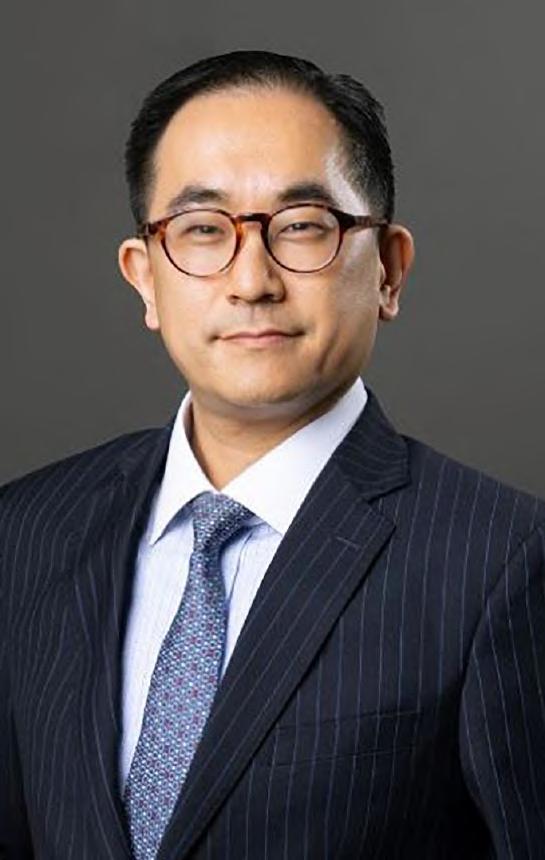
LOOKING BACK AT YOUR CAREER SO FAR, WHAT ARE SOME OF THE DEFINING EXPERIENCES THAT HAVE SHAPED YOU AS A LAWYER AND AS A LEADER?
My legal career has been rich and multifaceted, covering private practice and in-house roles in both commercial and public sectors. Each chapter has added a new dimension to how I think, lead, and apply the law in context.
My early years in law firms laid the groundwork, where I built legal instincts and professional discipline. Moving in-house was a turning point. I learned to align legal advice with business strategies, support the business to make informed decisions, and communicate legal risks in a way that is clear, actionable and resonates with non-lawyers.
A particularly inspiring chapter came during my time at the Equal Opportunities Commission, Hong Kong. I was involved in a landmark Discrimination Law Review, advised on anti-discrimination matters, and led the development of statutory Code of Practices. That role brought me to the

space where the law meets policy and public engagement. It deepened my understanding of how legal frameworks can operate beyond the corporate sphere, driving meaningful social change and serving the public good.
As Legal Director at the Hong Kong Tourism Board (HKTB), I draw on my experience to lead a dedicated legal team in support of HKTB’s mission, i.e. to market and promote the development of tourism in Hong Kong. I have leveraged the platform to grow continuously as a lawyer and as a leader, while continuing to serve the public.
WORKING IN THE PUBLIC SECTOR BRINGS UNIQUE RESPONSIBILITIES AND PRESSURES. WHAT HAVE BEEN THE BIGGEST CHALLENGES AND OPPORTUNITIES FOR YOU IN THIS SPACE?
Public organisations operate under a statutory governance framework. Unlike private companies that primarily focus on commercial
outcomes, legal advice in the public sector must navigate broader considerations, such as government policies, administration procedures and public interest. These complexities make the role challenging, especially in the constantly changing public landscape.
To meet different challenges, I need a good grasp on how the government and public sector function, along with a keen social awareness. These insights help me see beyond legal questions and offer advice that supports HKTB’s statutory functions. I also need to remain responsive to shifting public expectations, carefully balancing between compliance, risk management and operational efficiency.
What makes working in the public sector meaningful is the opportunity to contribute to matters of public importance. At HKTB, I support tourism initiatives on a global scale, advising on projects that resume Hong Kong’s tourism to normalcy following the pandemic,
as well as promoting Hong Kong as a worldclass travel destination. Seeing those initiatives come to life is truly rewarding.
THE TITLE OF GENERAL COUNSEL CAN MEAN DIFFERENT THINGS DEPENDING ON THE ORGANISATION. HOW DO YOU PERSONALLY DEFINE THE ROLE AND ITS PURPOSE?
General Counsel is both a strategic business partner and a problem solver. The role is to deliver legal advice that is practical, commercially sound and aligned with the organisation’s objectives. The scope goes beyond managing legal risks — it is about enabling the organisation to move forward with confidence.
At HKTB, I lead the Legal Department with a focus on collaboration and business understanding. We work closely with business teams across the organisation to understand their business models, priorities, and challenges. The insight enables us to provide timely and relevant legal input and empower the teams to make informed decisions.
Beyond legal advice, I see the General Counsel as a key advocate of governance culture. I proactively raise awareness and integrate good practices into daily operations, helping the business to understand broader implications of its decisions. This in turn enables the organisation to operate responsibly, especially in the public sector where accountability and transparency are fundamental.
HOW DOES YOUR LEGAL TEAM COLLABORATE WITH BUSINESS COLLEAGUES TO DELIVER ON HONG KONG TOURISM’S MISSION? CAN YOU SHARE AN EXAMPLE OF HOW LEGAL AND COMMERCIAL PERSPECTIVES COME TOGETHER IN PRACTICE?
A good example of collaboration between Legal and business teams at HKTB is our smart
tourism initiative. Among different elements, the project introduced an innovative digital platform that collected and used personal data from visitors worldwide. While this unlocked business opportunities, it raised complex privacy risks that needed to be addressed early and thoroughly.
Legal was involved from the outset. We partnered closely with business teams and advised on data protection requirements. Rather than treating personal data privacy as a standalone legal issue, we approached it as a shared responsibility that must be built into everyday decisions across the organisation.
As part of the implementation, Legal established a personal data governance framework tailored to HKTB’s operations. This included a clear policy and a practical guide to help colleagues understand and apply privacy principles in their work. When business teams are equipped to manage privacy matters confidently, they make better and faster decisions, with enhanced risk management.
By integrating privacy into operational workflows and equipping business teams with practical knowledge, Legal has helped foster a culture where commercial innovation and regulatory compliance go hand in hand.
ARTIFICIAL INTELLIGENCE IS CHANGING HOW MANY INDUSTRIES OPERATE, INCLUDING LEGAL. HOW DO YOU SEE AI INFLUENCING THE WORK OF IN-HOUSE COUNSEL, AND WHAT OPPORTUNITIES OR RISKS DO YOU ANTICIPATE IN YOUR SECTOR?
AI is already reshaping the legal landscape. In-house counsels need to be pragmatic about both the opportunities and potential risks.
On the opportunity side, AI has the potential to enhance how legal teams operate, such as contract drafting, legal research and handling routine tasks. In the tourism sector, AI-powered data analytics can offer valuable insights into tourist trends, sentiment and itinerary planning, enabling more immersive and personalised travel experiences.
However, AI introduces certain risks. Issues such as data privacy, algorithmic bias and accountability in automated processes require careful oversight. As in-house counsels, we need to stay ahead of these issues, making sure that any AI tools we adopt meet legal standards, align with public expectations, and are used responsibly.
The key is to treat AI as a tool to support, not replace, human judgment. While AI can enhance efficiency, it cannot substitute the need for context, ethical reasoning and sound judgment. Our role is to ensure that AI is deployed in a way that upholds trust, integrity and good governance.
Success in an in-house legal role requires a shift in mindset from legal advisor to strategic business partner.
Unlike external counsels who advise from a distance, in-house counsels form part of the business and are expected to understand the commercial drivers, operational dynamics and strategic priorities that shape decisions.
Approaching legal issues in context is critical. The role is not just about identifying risks, but about helping the business move
forward with solutions that are legally sound, commercially viable and operationally practical.
In-house roles are broad and fast-paced. Legal teams are often called upon to contribute beyond traditional work, whether it is shaping strategies, managing changes or supporting cross-functional initiatives. Success requires curiosity, agility and a willingness to step outside one’s comfort zone.
Legal expertise is just the starting point. What sets trusted in-house counsels apart is their ability to think commercially, collaborate effectively and engage deeply with the business.
What excites me most is the constant evolution and opportunities within the tourism sector, along with the legal challenges that arise from it.
Hong Kong’s tourism landscape is undergoing transformation following the pandemic. Key drivers include digital innovation, changing traveller preferences, and the rise of multi-destination tourism across the Guangdong-Hong Kong-Macao Greater Bay Area. These changes are redefining how tourism is experienced, promoted, and delivered.
As new initiatives take shape, they bring novel legal and regulatory considerations that require legal support. Being part of this journey allows the legal function to contribute meaningfully to compliance, resilience, and long-term value for the organisation.
With Broadfield, Effie Vasilopoulos is betting on Hong Kong’s future - blending global expertise, local insight, and a new vision for law firm culture.

Can you tell us about your career journey so far, and what inspired you to establish Broadfield in Hong Kong? Over the past two decades, I’ve had the privilege of advising some of the world’s most sophisticated fund managers, institutions and leading private capital providers. That journey has taken me from large international law firms to the front lines of fund structuring, writing regulation and implementing business strategy. What has become crystal clear is that both the market and clients have changed dramatically over the last decade. What worked in the past no longer works in the same way today.
Our firm Broadfield was born from a vision to create something that is more closely adapted to the needs of both clients and colleagues alike. Hong Kong was the natural home for that vision. It’s a gateway to Asia, a hub of financial dynamism and a place where global ambition meets exceptional talent. I also saw an opportunity to create a positive culture of engagement, as we truly believe in the future of Asia and wanted
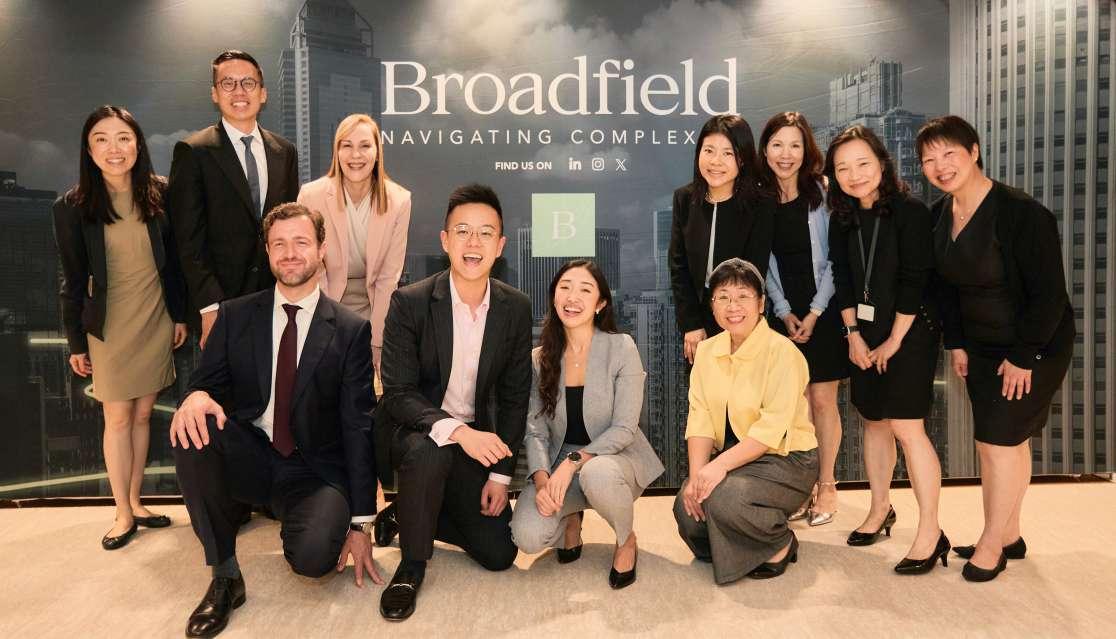
to operate within a structure that aligned with our growth story.
Broadfield presents an exciting opportunity to build a unique, multidisciplinary platform that leverages exceptional legal talent to deliver unparalleled value in a conflict-free construct. That’s what inspires me every day.
What makes Broadfield unique in the legal market?
Broadfield was founded to redefine what a modern international law firm can offer in terms of quality in legal services, but at an unparalleled value proposition. What makes us unique is our ability to deliver market-leading expertise across fund formation, private equity M&A, restructuring, finance and dispute resolution, all under one roof. Clients benefit from our holistic strategic advice, which integrates
the best regulatory capabilities, deep product and industry sector knowledge, tax expertise, and market-leading practices across all key areas relevant to their business. By combining these strengths, we can achieve transformative outcomes for clients.
Having spent many years in private practice in Hong Kong, how have you seen the market evolve, and where do you see it heading?
Hong Kong has always been a dynamic financial centre. However, it has radically transformed from just a regional gateway into a truly global hub for capital, innovation and regulatory leadership. The sophistication of the business ecosystem here has expanded, and the market has adopted complex strategies, including private credit and secondaries, as well as digital assets,
innovative green financing solutions and ESG-driven investment.
services, in ways that traditional law firms cannot match. Our goal is to help clients shape the future with their best outcomes at the forefront.
What worked in the past no longer works in the same way today. Both the market and client expectations have evolved — and Broadfield was created to meet that change head-on.
What is most exciting about the city is its shift toward convergence and the opportunities this is shaping in legal, tax, commercial and operational disciplines. These are no longer separate conversations; they are part of a unified strategy. Hong Kong supports scale, but also has a great deal of agility and innovation. With new tax reforms, regulatory clarity, and a deepening talent pool, we are entering a golden era for cross-border investment in Asia. Broadfield was designed to meet that moment.
What opportunities do you see for Broadfield in Hong Kong and the wider region?
We are operating at a time when capital flows are shifting, regulatory frameworks are modernising and investor appetite for sophisticated, cross-border strategies is stronger than ever. Hong Kong will serve as a launchpad for all of this. Indeed, the demand for integrated legal, tax, and commercial advice is growing in markets such as Hong Kong, Singapore, Tokyo and Sydney. Fund managers are scaling rapidly and looking for partners who understand both the local regulations and the business nuances. Our model enables us to deliver legal advice, along with access to marketleading commercial, tax and business
Having worked at leading international firms, what lessons are you bringing to Broadfield’s culture and client service approach?
One of the most valuable lessons was that good client service isn’t just about technical skill. It’s also about responsiveness, commerciality and building genuine trust. We’ve embedded that philosophy at Broadfield. We’re committed to being proactive, adaptive and deeply attuned to our clients’ overarching strategic goals, not just their legal needs.
Having worked across global platforms, I’ve seen how powerful it is when teams collaborate with a shared sense of purpose. That’s the energy at Broadfield. We have a culture that values innovation and the courage to challenge convention.
Broadfield has been hiring quite aggressively in Hong Kong since the opening. What excites you most about building a new office and team here?
There’s something incredibly energising about building a team from the ground up. What excites me is the opportunity to shape a culture and platform that’s modern, collaborative, and deeply client-focused. Rather than replicating legacy models, we’re creating a new kind of firm that’s high-quality, multidisciplinary, conflict-free and powered by an innovative technology and operational infrastructure so we can deliver real value to our clients.
Our hiring strategy reflects that vision. We’re securing talent across fund formation, private equity, M&A, restructuring, private credit and dispute resolution. My colleagues are not only technically brilliant but also business-savvy and entrepreneurial. Our optimised platform can deliver advice at a fraction of the cost and with much greater responsiveness. That’s what sets us apart. I’m proud of the momentum we are already seeing and excited to be a part of this unique journey.
What are the biggest challenges you anticipate for clients in the current market, and how do you plan to support them?
Whether it’s managing liquidity in private credit portfolios, responding to shifting tax regimes or executing cross-border transactions under tighter scrutiny, complexity is normal. The biggest challenge to this is adapting efficiently without compromising on our governance, excellence or strategic clarity.
Over the years, how has your relationship with in-house counsel evolved, and what do you see as the key to a successful partnership with them today?
The relationship between external counsel and in-house teams has evolved a lot. It is no longer merely about delivering technical advice; we both must become a strategic partner that understands the business, anticipates its challenges and proactively contributes to long-term value creation. In-house counsel must navigate a complex regulatory environment while also being expected to support commercial outcomes. That shift has elevated the role
of advisors who can offer practical, actionable solutions.
Hong Kong has transformed from a regional gateway to a global hub for capital and innovation. Its agility, talent, and scale make it the ideal launchpad for a new legal model.
To this end, we have built a platform designed to be responsive, cost-effective and deeply aligned with our clients’ needs. When we work with in-house teams, we strive to be an extension of their thinking, focused on helping them deliver the greatest possible impact.
Outside of law, what are your passions or interests that keep you inspired?
I’ve always believed that staying inspired outside of work is essential to staying sharp within it. I have a passion for travel, especially when it involves new cultural perspectives and communities. One of the great things about living and working in Asia is the constant variety of experiences. It changes how you see the world, which is such a wonderful thing.
I also love mentoring and supporting young professionals. Creating space for others to grow and lead is something I find rewarding and important. Hong Kong has been very good to all of us, and it is important to find ways to give back. It’s passions like these that keep me grounded. I try to bring those same qualities and that energy into my work every day.

In-house legal teams have always had to balance competing pressures: protecting their companies from risk while enabling their growth. But as companies scale faster, embrace new technologies and “go global” (as the kids say), in-house lawyers are finding ways to reshape their core skills to meet these pressures head-on.
Recent surveys indicate that this task is not simple. A 2024 Axiom survey found that 97% of in-house counsel report job stress and burnout, while 81% say their departments lack sufficient staff to meet demand. Another global report by Australia’s ACC showed that half of in-house lawyers expect AI to automate parts of their work within five years.
For many in-house leaders working in the Middle East, one of the world’s fastest-growing and most international business hubs, these global pressures are felt especially sharply.
In some ways, this emerging new world is much like the old world. As a company scales, it encounters new risks that its legal team must be able to identify, assess and mitigate to protect the organisation and its employees, said Noor Maki, General Counsel – MENA at Schindler Group.
“Also, as business activities expand, so does the volume of contracts, placing the legal team with the responsibility to ensure an adequate contract review process, and finding a compromise

between what terms can be accepted and what constitutes a high risk,” she said.
But the trick is that growth does not always come with a bigger budget. Maki said legal teams are expected to stay within, and ideally reduce, their legal spend. This can be done by reviewing existing retainers and exploring alternative firms or fee arrangements.
Florian Koemm, Vice-President and General Counsel for Siemens Energy in the Middle East and Africa, agreed that cost discipline is now a defining expectation. The tension of supporting a growing business with the same headcount is putting legal teams under intense pressure.
“The expectation now is to master and support the growth of the business with a significantly under-proportionate cost increase. This can only be realised through constantly optimising processes and procedures and introducing technological solutions,” Koemm said.
Alef Education General Counsel Daniel Abela said his team is today not only expected to keep up with the company’s growth but also to help set
the pace. That means moving beyond the traditional role of reacting to legal risks and instead anticipating them.
“In our AI-powered, tech-driven environment, my team is counted on to be not only operationally agile but genuinely strategic, aligning legal strategy to business goals while enabling innovation in EdTech across diverse regions,” he said.
The lesson applies far beyond the Middle East. Abela said that in-house teams worldwide must embed themselves early in business planning, build commercial acumen, and contribute to growth strategy, not just risk mitigation.
To remain relevant, Maki said legal teams must become active enablers of strategy. It is more important than ever that an in-house legal team understands the business’s goals, markets and challenges by providing training on industry trends, financial literacy and business strategy to enhance their ability to contribute meaningfully, she said.
“Foster a culture of teamwork where legal can work with other departments on projects early in the process. This will be of huge importance in building relationships and for allowing legal insights to be incorporated from the start. It could save you a lot of headaches,” Maki said.
Empowering a legal team to think like a CEO rather than just as lawyers will improve the way they deliver services, she added. A legal department should not be seen purely as a cost centre; it must also be a contributor to revenue. After all, somewhere in those piled-up contracts are provisions for enforcing payments and penalties to be collected.
Embedding legal into business planning early is also considered central to Abela’s approach, even
before the kernel of a business idea reaches the planning stage.
“We prioritise relationships across functions by joining executive meetings, listening to the needs of our tech and product teams, and continually aligning our legal roadmap to the mission. These days, ongoing development is non-negotiable, and every team member is encouraged to sharpen their commercial skills, so we not only anticipate risk but actively champion growth in every market we serve,” Abela said.
All three legal leaders pointed to technology as a drastic force in automating their routine day-to-day work and freeing them to focus on higher-value tasks. According to Wolters Kluwer’s Future Ready Lawyer Survey 2024, 76% of corporate lawyers now use generative AI at least weekly, and most expect their workloads to increase even as budgets stay flat.
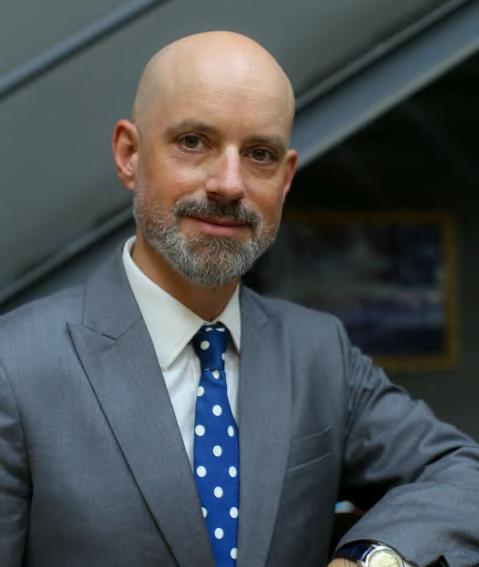
For Koemm, the benefits of technology can only be realised by constantly optimising legal processes and procedures and introducing
technological solutions. But he cautioned that technology is not a cure-all. Legal teams must adapt how they work to fully capture the benefits of incredible tools like AI and automation.
Maki also stressed familiarity with AI and data analytics. As legal technology evolves, staying ahead requires every lawyer, no matter their level, to gain familiarity with the right tools and understand how to use them to enhance efficiency, she said.
The drive to develop a technologically advanced, cost-efficient operating infrastructure across the business reflects a broader trend in which clients are expecting legal teams to deliver not just advice but sometimes even innovation. If a problem is noticed at any level or a better way of working is discovered, legal teams should feel free to speak up and provide solutions as well. They must feel part of the business, not just a cost-center.
Asked what a future-ready legal department would look like, each of these lawyers offered a distinct vision, but all underlined the importance of developing multidisciplinary skills that are strongly aligned with business strategy. Maki said her ideal team would be a blend of multiple specialities.
“I would design a legal department comprising a mix between a fierce litigator, a contract specialist with an eye to detail, a master negotiator and a compliance police. An expert in AI would also be a valuable addition to any team. Creating a team of individuals with different expertise will help navigate problems and create solutions at various levels,” she said.
Maki also highlighted the value of diversity, business acumen and innovation. Other than the standard skills expected from lawyers, the in-house team must think outside the box and find solutions that are not always within their
remit. Having the right business acumen also enables them to explore different approaches to a legal problem or legal opportunity that may not be mentioned within their job descriptions.
“Another critical skill is to have a voice and be heard. Do not hesitate to express your opinions on specific matters or share ideas with the business. Innovation and agility are needed now more than ever,” Maki said.
Abela’s ideal team would be “boldly digital first, relentlessly innovative” and tightly woven into business priorities.
“My world-beating team would be client-centric, versatile and always aligned to the diverse needs of the business. The essential features to enable this would be robust automation for all repetitive work, advanced analytics and AI integration for proactive, strategic insight, plus transparent cross-functional collaboration,” Abela said.
He added that strong cybersecurity practices and measurable performance indicators would be crucial, along with a culture that values agility and real-time access to information. But soft skills are just as vital as all that hard stuff.
“Adaptability and interpersonal resilience are invaluable for navigating a fast-paced, collaborative business culture and diverse international stakeholder landscape. We invest in effective communication and a culture of learning, so every legal team member can become a dynamic, strategic, and trusted business advisor,” Abela said.
Koemm’s team would draw from an organisational design that ensures there is always a moat between its legal advice and the various “wants” that exist in the business. This requires maintaining high professional standards, no matter the changes occurring in the sector. Resisting the temptation to dilute legal advice will always be a fundamental skill.
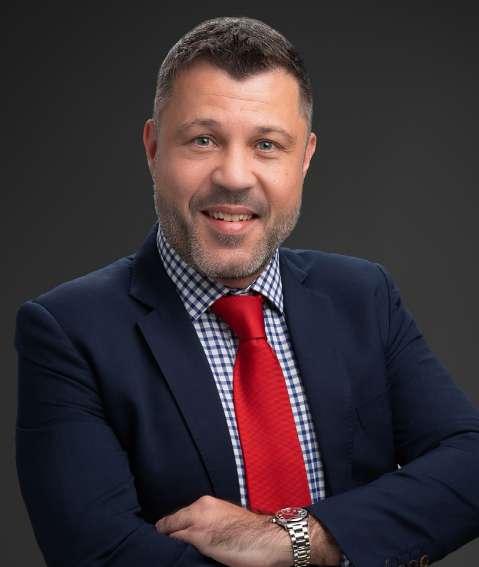
“All legal and compliance reporting lines should report only into the business at the highest level, ideally the global CEO. Any organisation in which in-house counsel report into the business partners they are supposed to support (and at times criticise) is ill advised,” Koemm said.
If legal teams are to play a role in sustaining a high-growth organisation, they must learn to become trusted advisors who can also propel the mission forward, not just be a rubber-stamp compliance. The ACC’s 2024 In-House Trends report found that operational efficiency is now the top priority for legal departments globally, and that general business skills are the most soughtafter area for development.
As In-house lawyers shift from being reactive gatekeepers to proactive business partners, they must learn to speak the language of business while protecting their professional independence and integrity – whether they are operating in the Middle East or anywhere else in the world.


How many times a day do you see a reference to artificial intelligence these days? I was preparing for a seminar on the evolution and impact of AI on data privacy, copyright and the law recently and I began to wonder whether people are getting bored of AI yet.
Seemingly not. In the space of just a few short years AI has become ubiquitous and the news, media, internet, and seemingly every outlet is either talking about AI, selling an AI solution, or using an AI to sell you something else. You then begin to wonder whether the news, media, internet and seemingly every outlet are using AI to sell you something which turns out to be running on or developed by AI and it starts to become rather exhausting.
Depending on how much you use online services, you may have noticed that AI has become more or less ubiquitous. My morning ritual typically involves reading or listening to the latest news on my phone whilst I get ready

to head to the office, checking out the latest new release music, a quick glance at social media then inevitably half-watching a video about video games, or movies, or music, or gadgets, or whatever crazy thing is happening on the other side of the world most likely via YouTube as I travel to work.
Over the course of the recent Summer I started to notice that this entire ritual had become dominated by AI. Not just that the subject matter of whatever news story was relevant was about AI, and what’s happening with AI companies such as OpenAI and Anthropic, or the future of AI but rather that more and more of it was actually generated by AI.
News stories often had that telltale meandering flow which suggests AI had been involved in drafting it. Social media platforms (which had long been losing relevance due to the fact that so much content was a 50/50 split between people you don’t know selling

us something or people you might not want to know pushing their latest view on geopolitics and/or pictures of cats) had changed. It was now dominated by AI-generated stories with AI-generated pictures most likely posted by AI bots. Both social media and YouTube were filled with obviously AI-generated content which was pushing dubious products or propaganda all soundtracked by an irritatingly catchy piece of plinky-plonky music joined by narration from that ubiquitous but similarly irritating TikTok AI-generated voice (I’m sure you know the one I mean and can now hear it

AI fatigue is coming for
As for YouTube, it was now filled with AI created videos for AI created mobile phone games or movies that didn’t exist or else it contained some rather frightening misinformation or propaganda espousing some fairly extreme views again backed by AI footage and narrated by an AI voice. This was of course interspersed with an AI-generated advertisement for a mobile game which itself looked like it was built with AI.
There’s a name for all of this AI-generated content which seems to have taken over the internet. “AI slop”: defined as “low-quality media, be it in the form of video, writing or images, made by generative AI”.
It’s incredibly easy to create – I in fact created some of my own for a recent talk I gave on AI. But it seems to be ubiquitous. Worse still, it’s making its creators considerable sums of revenue by sheer virtue of the fact that people
click on it, consume it and share it, ensuring that the creators gain ad revenue. A quick search will even take you to tutorials on how to create your own AI slop and how to generate income from it.
The problem is, in my view, that it is ruining the internet. Social media platforms were already becoming nothing but generic ad serving machines, but now this is happening to the whole internet. If you do a search on Google these days then you’ll find that the top search results will be an AI-generated AI overview of links that Google AI wants you to click on (and gain revenue from) followed by sponsored content and ads. Which means that rather than using a Google search to search the internet a Google search becomes asking Google to recommend links that likely result in it gaining the most income.
Plus we are being increasingly pressured to use AI, not just by social media, the internet, or indeed our own fear of being left behind if we don’t use it. The software we use day to day now often enthusiastically encourages us to use AI: it’s very difficult to start drafting a document or slide show using Microsoft 365 without having Microsoft’s AI Co-Pilot ask if it can draft it for you. It’s a bit like the AI-enabled return of Microsoft’s Clippy for those who remember that.

The problem is that when you are trying to get something done, which might not need AI, the constant pushing of AI can become exhausting, and before long it leads to what I can only describe as “AI fatigue”.
Have no doubt that AI fatigue is coming for us lawyers. Over just the last six months the increase in law-focused AI platforms has been marked. Some of them are fantastic, especially in relation to case research, generation of precedents and producing first
drafts of documents. It’s a time-saver, and when I speak to trainees about the rigmarole of finding cases and precedents back when I was a trainee (a very long time ago!) I realise how much easier the technology has made our lives.

AI’s most significant contribution to legal practice may be to enable people to think they can replace a lawyer with generative AI, and create what is best described as ‘AI Legal Slop.’
The problem is magnified if you are dealing with a counterparty or litigant in person who has decided there’s no need for a lawyer to be involved when an AI can do the job for free. Then magnified a thousandfold more if you are before a judge who is friendly to non-represented litigants in person.
So rather than making life easier for lawyers, or indeed putting lawyers out of business, it seems that AI’s most significant contribution to legal practice thus far may be to enable people to think that they can replace a lawyer with generative AI, and create what is best described as “AI Legal Slop”.
But responding to AI-generated requests for legal advice, which are often overly long, meandering and unclear as to what’s actually being asked for can be frustrating and time-consuming. As can marking up by hand a poorly generated AI contract, especially when it contains errors that no lawyer would realistically make, or refers to legislation or practices from another jurisdiction, or contains what appear to be hallucinations rather than clauses that have been reviewed by a human being.
But the fresh new hell which AI has created for lawyers must be AI-generated litigation documents. Bafflingly long but confused letters, statements of claim which don’t make sense but have to be responded to paragraph by paragraph, witness statements that make absolutely no sense, and documents which clearly have been written by ChatGPT and clearly are based on the rules of a different jurisdiction… all of these have to be read, digested, and then somehow properly responded to.

The problem of AI Legal Slop is only going to get worse; there’s also an argument that giving those who want access to the legal system a way to do so without them having to pay for an expensive lawyer to draft a document or pleading, which must be a good thing in that it provides easier access to the legal system. But whilst this is both a just and idealistic suggestion it doesn’t take into account the increased burden upon the poor qualified lawyer tasked with painstakingly responding to the document full of AI Legal Slop. Rather than replacing lawyers, in this instance, AI has just given us a lot more work to do.
Paul Haswell is a partner at Howse Williams in Hong Kong, specialising in Technology Transactions and Sourcing. With over 20 years of experience, he focuses on TMT matters, including data and cybersecurity, telecommunications, and emerging technologies like AI and blockchain. A tech enthusiast since childhood, Paul has handled major technology disputes and offers a blend of legal expertise and passion for innovation.
Outside of his legal work, Paul is a tech and law podcaster and a DJ. He co-hosts the “Sunday Escape” radio show on RTHK and the podcast “Crimes Against Pop.” A music lover with an extensive vinyl collection, Paul enjoys discovering and sharing new music. He’s also a sci-fi fan, particularly of “Doctor Who.”


Your ‘at a glance’ guide to some of the region’s top service providers.
Practice Area key
Alt’ Investment Funds (inc. PE)
Antitrust / Competition
/ Regulatory
& M&A
Broad & Bright
Tel: (86) 10 8513 1818
Email: broadbright@broadbright.com
Contact: Mr Jun Ji (Jun_ji@broadbright.com)
Website: www.broadbright.com
COM • CMA • ENR • LDR • TMT
East & Concord Partners
Tel: (86) 10 6590 6639
Email: Beijing@east-concord.com
Contact: Mr. Dajin Li Website: www.east-concord.com
BF • CM • CMA • IP • LDR
Llinks Law Offices
Tel: (86) 21 31358666
Email: master@llinkslaw.com
Website: www.llinkslaw.com
BF • CM • CMA • INV • LDR
W. K. To & Co.
Tel: (86) 10 8587 5076
Email: wktoco@wktoco.com
Contact: Cindy Chen
Website: www.wktoco.com
CMA • E • LDR • RE • REG
Conyers Dill & Pearman
Tel: (852) 2524 7106
Email: hongkong@conyers.com
Contact: Christopher W.H. Bickley, Partner, Head of Hong Kong Office
Website: www.conyers.com
BF • CM • CMA • INV • LDR
Elvinger Hoss Prussen
Tel: (852) 2287 1900
Email: xavierlesourne_hk@elvingerhoss.lu
Contacts: Mr Xavier Le Sourne, Partner, Ms Charlotte Chen, Counsel Website: www.elvingerhoss.lu
* Elvinger Hoss Prussen’s Hong Kong office provides inbound and outbound legal services only under Luxembourg law
BF • CM • CMA • INV • TX
W. K. To & Co.
Tel: (852) 3628 0000
Email: mail@wktoco.com
Contact: Vincent To Website: www.wktoco.com
CMA • E • LDR • RE • REG
Anand and Anand
Tel: (91) 120 4059300
Email: pravin@anandandanand.com
Contact: Pravin Anand - Managing Partner Website: www.anandandanand.com
IP • LDR
Litigation & Dispute Resolution
Maritime & Shipping
Projects & Project Finance (inc. Infrastructure)
Real Estate / Construction
Restructuring & Insolvency
Taxation
Telecoms, Media & Technology
Clasis Law
Tel: (91) 11 4213 0000, (91) 22 4910 0000
Email: info@clasislaw.com
Contacts: Vineet Aneja, Mustafa Motiwala Website: www.clasislaw.com
CMA • E • LDR • REG • RES
ABNR (Ali Budiardjo, Nugroho, Reksodiputro)
Tel: (62) 21 250 5125/5136
Email: info@abnrlaw.com infosg@abnrlaw.com
Contacts: Emir Nurmansyah, enurmansyah@abnrlaw.com) Nafis Adwani, nadwani@abnrlaw.com Agus Ahadi Deradjat, aderadjat@abnrlaw.com Website: www.abnrlaw.com
BF • CM • CMA • ENR • PF
Makarim & Taira S.
Tel: (62) 21 5080 8300, 252 1272
Email: info@makarim.com
Contact: Lia Alizia
Website: www.makarim.com
BF • CMA • E • LDR •
Mochtar Karuwin Komar
Tel: (62) 21 5711130
Email: mail@mkklaw.net, ek@mkklaw.net
Contact: Emir Kusumaatmadja
Website: www.mkklaw.net AV • CMA • ENR • LDR • PF
SSEK Legal Consultants
Tel: (62) 21 521 2038, 2953 2000
Email: ssek@ssek.com
Contact: Denny RahmansyahManaging Partner Website: www.ssek.com
Twitter: @ssek_lawfirm
BF • CMA • E • ENR • RE
Adnan Sundra & Low
Tel: (603) 2070 0466
Email: enquiry@adnansundralow.com
Contacts: Deepak Sadasivan, Rodney D’Cruz Website: www.asl.com.my
BF • CM • CMA • IF • PF
Azmi & Associates
Tel: (603) 2118 5000
Email: general@azmilaw.com
Contact: Dato’ Azmi Mohd AliSenior Partner Website: www.azmilaw.com
BF • CM • CMA • ENR • PF
Trowers & Hamlins LLP
Tel: (601) 2615 0186
Email: nwhite@trowers.com
Contact: Nick White – Partner Website: www.trowers.com
BF • CMA • ENR • IF • PF
ACCRALAW (Angara Abello
Concepcion Regala and Cruz Law Offices)
Tel: (632) 830 8000
Email: accra@accralaw.com
Contacts: Emerico O. De Guzman, Ana Lourdes Teresa A. Oracion, Neptali B. Salvanera Website: www.accralaw.com
CMA • E • IP • LDR • TX
DivinaLaw
Tel: (632) 822-0808
Email: info@divinalaw.com
Contact: Nilo T. Divina, Managing Partner Website: www.divinalaw.com
BF • CMA • E • LDR • TMT
Morales & Justiniano
Tel: (632) 834 2551, (632) 832 7198, (632) 833 8534
Email: ramorales@primuslex.com
Contact: Mr. Rafael MoralesManaging Partner Website: www.primuslex.com
BF • CM • CMA • IP • LDR
Ocampo & Suralvo Law Offices
Tel: (632) 625 0765, Email: info@ocamposuralvo.com
Contact: Jude Ocampo Website: www.ocamposuralvo.com
CMA • ENR • PF • TX • TMT
SyCip Salazar
Hernandez & Gatmaitan
Tel: (632) 8982 3500, 3600, 3700
Email: sshg@syciplaw.com
Contact: Hector M. de Leon, Jr. - Managing Partner Website: www.syciplaw.com
BF • CMA • E • ENR • PF
Villaraza & Angangco
Tel: (632) 9886088
Email: fm.acosta@thefirmva.com
Contact: Franchette M. Acosta Website: www.thefirmva.com
CMA • IP • LDR • REG • RES
Bae, Kim & Lee LLC
Tel: (82 2) 3404 0000
Email: bkl@bkl.co.kr
Contact: Kyong Sun Jung Website: www.bkl.co.kr
BF • CMA • IA • LDR • RE
Kim & Chang
Tel: (82-2) 3703-1114
Email: lawkim@kimchang.com Website: www.kimchang.com
COM • BF • CMA • IP • LDR
Yoon & Yang LLC
Tel: (82 2) 6003 7000
Email: yoonyang@yoonyang.com
Contacts: Jinsu Jeong, Junsang Lee, Myung Soo Lee Website: www.yoonyang.com
COM • E • IP • LDR • TX
Yulchon LLC
Tel: (82-2) 528 5200
Website: www.yulchon.com
COM • CMA • IP • LDR • TX
Deep & Far Attorneys-at-Law
Tel: (8862) 25856688
Email: email@deepnfar.com.tw
Contact: Mr. C. F. Tsai
Website: www.deepnfar.com.tw
COM • CM • E • IP • LDR
Chandler MHM Limited
Tel: (66) 2266 6485
Email: jessada.s@chandlermhm.com, satoshi.kawai@chandlermhm.com
Contacts: Jessada Sawatdipong, Satoshi Kawai
Website: www.chandlermhm.com
BF • CMA • ENR • PF • RE
Kudun & Partners Limited
Tel: (66) 2 838 1750
Email: contact@kap.co.th. kudun.s@kap.co.th troy.s@kap.co.th mayuree.s@kkap.co.th niruch.w@kap.co.th
Contacts: Kudun SukhumanandaCapital Markets, Corporate M&A, Banking & Finance Restructuring, Insolvency Troy Schooneman –International Practice
Mayuree Sapsutthiporn –China Practice
Niruch Winiyakul –Litigation / Dispute Resolution Website: www.kap.co.th
CMA • CM • LDR • RES • TX
Pisut and Partners Co., Ltd.
Tel: (66) 202 66226, 202 66227
Email: info@pisutandpartners.com
Contacts: Mr. Pisut Rakwong Website: www.pisutandpartners.com
CM • CMA • E • LDR • RE
Weerawong, Chinnavat & Partners Ltd.
Tel: (66) 2 264 8000
Email: Veeranuch.t@weerawongcp.com
Contacts: Veeranuch ThammavaranucuptSenior Partner
Website: www.weerawongcp.com
BF • CM • CMA • LDR • PF
Global Vietnam Lawyers LLC
Tel: (84) 28 3622 3555
Email: info@gvlawyers.com.vn
Contacts: Nguyen Gia Huy Chuong Website: www.gvlawyers.com.vn
CMA • IP • LDR • RE • REG
LE & TRAN
Tel: (84) (28) 38 421242
Contact: Stephen Le Email: info@letranlaw.com Website: www.letranlaw.com
COM | E | IA | LDR | RE | RES
Russin & Vecchi
Ho Chi Minh Office:
Tel: (84) 28 3824-3026
Email: lawyers@russinvecchi.com.vn
Contacts: Sesto E Vecchi - Managing Partner Nguyen Huu Minh Nhut – Partner Nguyen Huu Hoai – Partner
Hanoi Office:
Tel: (84) 24 3825-1700
Email: lawyers@russinvecchi.com.vn
Contact: Mai Minh Hang – Partner Website: www.russinvecchi.com.vn
CMA • E • IP • INS • TMT
VILAF
Tel: (84) 28 3827 7300, (84) 24 3934 8530
Email: duyen@vilaf.com.vn, tung@vilaf. com.vn, anh@vilaf.com.vn
Contacts: Vo Ha Duyen, Ngo Thanh Tung, Dang Duong Anh Website: www.vilaf.com.vn
BF • CMA • RE • ENR • LDR
Trowers & Hamlins
Tel: (973) 1 751 5600
Email: bahrain@trowers.com
Contact: Louise Edwards - Office Manager Website: www.trowers.com
BF • CMA • IF • LDR • RE
Trowers & Hamlins
Tel: (968) 2 468 2900
Email: oman@trowers.com
Contact: Louise Edwards - Office Manager Website: www.trowers.com
BF • CMA • LDR • PF • RE
Abdelaziz Alhanaee Advocates And Legal Consultancy
Phone: +971 4 380 9666
Contact: Abdelaziz Alhanaee
Email: ABDELAZIZ@ALHANAEE.COM Website: www.alhanaee.com
E • IP • IA • LDR • RES
Afridi & Angell
Email: dubai@afridi-angell.com
Contact: Bashir Ahmed - Managing Partner Website: www.afridi-angell.com
BF • CMA • LDR • RE • REG
AMERELLER
Tel: (971) 4 432.3671
Email: gunson@amereller.com
Contact: Christopher Gunson Website: www.amereller.com
CMA • E • IA • LDR • REG
Trowers & Hamlins LLP
Dubai office: Tel: (971) 4 351 9201
Email: dubai@trowers.com
Contact: Jehan Selim - Office Manager
Abu Dhabi office: Tel: (971) 2 410 7600
Email: abudhabi@trowers.com
Contact: Jehan Selim - Office Manager Website: www.trowers.com
BF • CMA • LDR • PF • RES
Meyer Unkovic Scott
Tel: (412) 456 2833
Email: du@muslaw.com
Contact: Dennis Unkovic Website: www.muslaw.com
CMA • IP • IA • LDR • RE
Beijing Arbitration Commission / Beijing International Arbitration Center (Concurrently use)
Tel: (86) 10 85659558
Email: xujie@bjac.org.cn
Contact: Mr. Terence Xu(許捷) Website: www.bjac.org.cn
Hong Kong International Arbitration Centre
Tel: (852) 2525 2381
Email: adr@hkiac.org Website: www.hkiac.org
Maxwell Chambers Pte Ltd
Tel: (65) 6595 9010
Email: info@maxwell-chambers.com Website: maxwell-chambers.com
Shenzhen Court of International Arbitration (Shenzhen Arbitration commission)
Tel: (86) 755 83501700, (86) 755 25831662
Email: info@scia.com.cn Website: www.scia.com.cn
LOD - Lawyers On Demand
Tel: (65) 6326 0200
Email: singapore@lodlaw.com
Contact: Oliver Mould Website: lodlaw.com
Peerpoint by Allen & Overy
Tel: (852) 2974 7000
Email: info@peerpoint.com
Contact: Stephanie Szeto Website: www.peerpoint.com
Vario from Pinsent Masons (HK) Ltd
Tel: (852) 2294 3454
Email: enquiries@pinsentmasonsvario.com Website: https://pinsentmasonsvario.com
Konexo
Tel: (65) 66911 4567
Contacts: Joan Oh
Email: enquiries@konexoglobal.sg Website: www.konexoglobal.com
True Recruitment Asia
Tel: (852) 5325 9168
WhatsApp: (852) 5325 9168
Email: kannan@truerecruitmentasia.com
Splash Diving (HK) Limited
Learn to Dive and Fun Dive with the Winner of the PADI Outstanding Dive Centre/Resort Business Award!
Tel: (852) 9047 9603, (852) 2792 4495
Email: info@splashhk.com
Website: www.splashhk.com
Impact India Foundation
An international initiative against avoidable disablement. Promoted by the UNDP, UNICEF and the World Health Organization in association with the Government of India.
Tel: (91) 22 6633 9605-7
Email: nkshirsagar@impactindia.org
Website: www.impactindia.org
